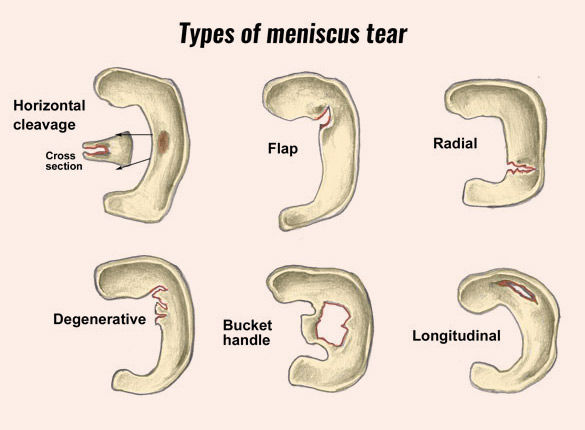Overtraining: When Too Much Exercise Becomes Harmful | Physio360 Chennai.
- PHYSIO 360

- Oct 26, 2025
- 4 min read

INTRODUCTION;
Exercise is one of the best things you can do for your body—but as the saying goes, “too much of anything is bad.” Overtraining happens when you push your body beyond its ability to recover. Instead of building strength and endurance, it leads to fatigue, injury, and even burnout.
At Physio360 Chennai, we often meet athletes, fitness enthusiasts, and active individuals who mistake overtraining for dedication. Our expert physiotherapists help them recover through guided rest, rehabilitation, and corrective exercise programs.
What Is Overtraining?
Overtraining is a condition that occurs when the intensity and frequency of exercise exceed the body’s recovery capacity. It’s not just physical exhaustion—it affects your muscles, nervous system, hormones, and mental health too.
At Physio360, we call it the “silent performance killer” because it often creeps in unnoticed until injuries or chronic fatigue appear.
Common Causes of Overtraining.
Lack of proper rest and recovery
Poor nutrition and hydration
Repetitive workouts without variation
Ignoring early signs of fatigue or pain
High stress and inadequate sleep
At Physio360, we emphasise balanced training and recovery cycles to prevent the harmful effects of overtraining.
Symptoms of Overtraining.
Overtraining doesn’t happen overnight—it develops gradually. Look out for these warning signs:
🔹 Physical Symptoms
Persistent muscle soreness or joint pain
Unexplained fatigue or weakness
Drop in athletic performance
Increased heart rate during rest
Sleep disturbances and insomnia
🔹 Psychological Symptoms
Mood swings, irritability, or depression
Loss of motivation to train
Poor concentration and mental fog
If you notice these signs, it’s time to take a break and consult a physiotherapist at Physio360 Chennai for proper assessment.

Physiological Effects of Overtraining.
Overtraining impacts more than just your muscles:
Hormonal imbalance: Increased cortisol (stress hormone) and decreased testosterone levels.
Immune suppression: Frequent colds or infections due to weakened immunity.
Metabolic slowdown: Difficulty in fat loss or unexpected weight gain.
Musculoskeletal strain: Increased risk of tendonitis, muscle tears, and stress fractures.
The physiotherapists at Physio360 use advanced techniques to assess muscle fatigue, posture imbalance, and tissue recovery needs.
How Physiotherapy Helps in Managing Overtraining.
At Physio360 Chennai, physiotherapy plays a major role in restoring recovery and preventing re-injury. Our approach focuses on:
✅ 1. Comprehensive Assessment
We evaluate training patterns, muscle imbalance, and fatigue levels using manual and functional testing.
✅ 2. Active Recovery Techniques
Myofascial release
Stretching and mobility exercises
Hydrotherapy and cold therapy
These techniques help relax tense muscles and improve blood circulation.
✅ 3. Corrective Exercises
Our physiotherapists design personalised exercise programs to correct postural issues and movement dysfunctions caused by overtraining.
✅ 4. Load Management Education
We educate athletes and gym-goers on how to balance training load with adequate recovery periods.
✅ 5. Nutritional and Lifestyle Guidance
Physio360 also guides on hydration, sleep hygiene, and nutrition to enhance overall recovery.
Preventing Overtraining: Smart Training Tips from Physio360.
To stay fit without burning out, follow these Physio360-approved strategies:
✔ Listen to Your Body: Pain, fatigue, or lack of motivation are signs to slow down.
✔ Prioritize Rest Days: Muscles grow and repair during rest—not while training.
✔ Vary Your Workouts: Alternate between strength, cardio, and flexibility training.
✔ Warm Up & Cool Down: Never skip these essential recovery steps.
✔ Stay Hydrated & Eat Well: Proper nutrition fuels performance and repair.
✔ Sleep 7–8 Hours Daily: Recovery starts with good-quality sleep.
✔ Regular Physiotherapy Check-ups: Visit Physio360 Chennai to monitor your musculoskeletal health and prevent injuries.
Overtraining vs. Overreaching.
Feature | Functional Overreaching | Overtraining Syndrome |
Duration | Short-term fatigue (1–2 weeks) | Long-term exhaustion (weeks–months) |
Recovery | Quick with rest | Slow and difficult |
Performance | Slight dip, then improvement | Continuous decline |
Treatment | Rest, nutrition, physiotherapy | Long-term rehab, medical supervision |
Early detection at Physio360 can prevent short-term fatigue from turning into chronic overtraining syndrome.

Physiotherapy Modalities Used at Physio360 for Overtraining.
Cryotherapy (Cold Therapy) for inflammation control
Deep Tissue Massage for muscle relaxation
Ultrasound Therapy for tissue repair
Dry Needling and Taping for pain relief and recovery
Electrotherapy and Laser Therapy for deep healing
These techniques, combined with tailored exercises, ensure faster recovery and a safe return to performance.
Real-Life Scenario at Physio360.
A young marathon runner came to Physio360 Chennai with chronic knee pain, fatigue, and reduced stamina. Our physiotherapists identified it as overtraining syndrome due to excessive running and inadequate rest.
After a few weeks of physiotherapy sessions, strength rebalancing, and guided recovery, the athlete regained performance and returned to training safely with a new understanding of body awareness and recovery principles.
Conclusion.
Overtraining doesn’t make you stronger; it breaks you down. Remember, recovery is as important as training. Physiotherapy at Physio360 Chennai helps you recognise early signs of overtraining, restore muscle balance, and optimise your performance safely.
Don’t let overtraining steal your progress. Let the experts at Physio360 help you find the perfect balance between effort and recovery.
REFERENCE AND RESEARCH ARTICLE.
1.Overtraining Syndromehttps://pmc.ncbi.nlm.nih.gov/articles/PMC3435910/.
2.Beyond physical exhaustion: Understanding overtraining syndrome through the lens of molecular mechanisms and clinical manifestationhttps://pmc.ncbi.nlm.nih.gov/articles/PMC12010411/.




Comments